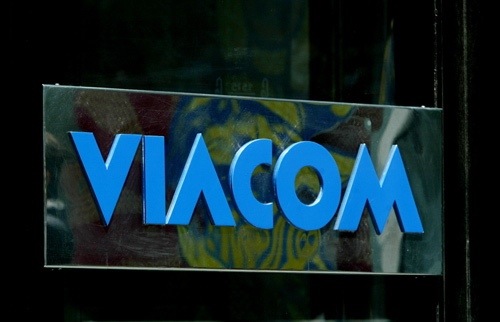It’s looking grim for Viacom in a dispute over payments to former Harmonix shareholders. This court battle seems to demand more attention given the newfound appetite for M&A in the entertainment sector and the amount of money at stake for the media conglomerate.
On Tuesday, a Delaware Supreme Court affirmed what both an arbitrator and a Delaware Circuit Judge had previously said — that Viacom owes $299 million (plus interest) in “earn-outs” to the individuals who once controlled Harmonix, the video game company that produced the Rock Band and Guitar Hero games.
Viacom has been battling this issue in court since an arbitrator’s ruling in December 2011 and, according to the company’s last quarterly filing, has recorded a reserve of $321 million as of March 31, 2013, reflecting an uncertain tax position over the possible payment. The options to escape the payment could be dwindling.
Three hundred million dollars is a lot of money. For that, one could make a new Star Trek movie and have $100 million left over, or book 10 years of service of a top entertainment chief executive. In this instance, besides the ability to offset future cash taxes, the $300 million payment to former Harmonix shareholders won’t buy much of anything.
In 2006, at the height of the music simulation boom in the video game business, Viacom purchased Harmonix with an eye on having a company that could complement its MTV division. Four years later, Viacom sold the company.
At the time of the sale, Viacom CEO Philippe Dauman commented, “Harmonix has and will continue to create terrific video games, but for us, it is about focus. The console games business requires an expertise and scale that we don’t have.”
But a sale of the company didn’t end Viacom’s Harmonix experience.
When Viacom bought Harmonix for $175 million, it structured a deal so that Harmonix’s former owners would get “earn-outs,” or bonuses tied to financial performance post-merger. In 2007, Viacom paid some $150 million in bonus payments, but the following year, it paid nothing. Walter Winshall, the designated stockholder representative, disputed a 2008 Earn-Out Statement calculated by Viacom.
There was a wide gap between the parties on payment obligations. The former shareholders of Harmonix sought some $700 million, while Viacom demanded to be repaid about $131 million.
Viacom wanted, among other things, to deduct the costs of Harmonix’s unsold inventory in calculating earn-outs, but resolution accountants at BDO came to a different conclusion in December 2011. They agreed with Winshall that the costs of unsold inventory should not be deducted from net revenue.
Viacom was on the hook for the 2008 earn-out payments, and so the company filed suit in the Delaware Court of Chancery, seeking to vacate the award and compel the arbitrators to consider arguments and evidence that it alleged was improperly excluded.
Last August, a Delaware judge ruled against Viacom, and on Tuesday, the Delaware Supreme Court affirmed that ruling.
The claim that the resolution accountants committed “misconduct” lacks merit, says the appeals court.
“BDO did not ignore any relevant evidence,” says the ruling. “Rather, it decided that evidence concerning an inventory writedown could not be considered, absent consent of the parties, because that issue was not identified in the original documents governing the scope of the arbitration. There was no misconduct, even if BDO’s decision on that issue was incorrect.”
The Delaware Supreme Court also rejected Viacom’s argument that the issue was one for a court to decide, rather than an arbitrator.
As a result, assuming there is no reconsideration and the U.S. Supreme Court doesn’t take up the case, Viacom might eventually have to do a different type of writedown. The company has accounted for the money with the reserve so Viacom doesn’t expect it to further impact its books. But in regulatory filings, Viacom seems to be preparing shareholders nonetheless for the event of having to pay out the money. The company estimated in its last quarterly filing that “to the extent paid, the charge will generate a tax benefit of up to $135 million, which will be available to offset qualifying future cash taxes.”
Harmonix shareholders were represented by the law firm of Sidley Austin, which counts the total legal victory — including a settled dispute over the 2007 earn-outs — to be $533 million.


